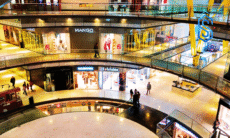Mumbai: India’s retail leasing landscape is undergoing a significant transformation, driven by shifting consumer behaviors and evolving brand strategies.
According to ANAROCK Research, apparel and food & beverage (F&B) segments accounted for a combined 54% of the total retail leasing activity – approximately 2 million sq. ft. – across the top seven Indian cities in the first half (H1) of 2025.
Apparel Leasing Declines, F&B and Jewellery Gain Traction
Despite remaining the leading retail category, apparel’s share of leasing has declined from 42% in FY19 to 37% in FY25, with projections showing a further dip to 32% by FY30, owing largely to the rapid growth of e-commerce and quick commerce platforms.
Also Read: Retail Credit Market Trends: Younger Borrower Demand Slows, Rural Enquiries Rise
Conversely, F&B has emerged as a fast-growing category, increasing its share from 8% in FY19 to 12% in FY25, and is expected to reach 16% by FY30. The segment benefits from rising demand for experiential dining and lifestyle-centric consumption among Millennials, Gen Z, and Gen Alpha.
“The drop in apparel leasing reflects the challenges posed by online and quick commerce players,” said Anuj Kejriwal, CEO & MD, ANAROCK Retail. “Meanwhile, categories that offer experience and value – such as F&B, beauty & wellness, and jewellery – are becoming strong drivers of mall traffic and leasing momentum.”
The jewellery segment, in particular, has shown remarkable growth. From a mere 2% share in FY19, it has climbed to 5% in FY25, and is projected to hit 13% by FY30, highlighting a broader trend toward high-value consumption.
Breakdown of Retail Leasing Share in H1 2025
- Apparel: 33%
- F&B: 21%
- Entertainment Zones: 16%
- Home & Lifestyle: 11%
Changing Consumer Preferences Driving Shift in Retail Strategy
Today’s consumers, led by tech-savvy generations, prioritize personalization, speed, and immersive experiences over traditional loyalty and legacy brands.
Retailers are now moving beyond conventional store formats, adopting tech-enabled and emotionally resonant approaches to meet rising expectations.
Also Read: TCS Partners Salling Group to Transform 2100 European Retail Stores with AI and Cloud
“The future of retail lies in aligning with what modern consumers value – flexibility, emotional connection, and meaningful experiences,” added Kejriwal. “Retail leasing trends clearly reflect this paradigm shift.”
As AI, automation, and sustainability continue to reshape retail, physical stores must transform into experiential hubs – not just points of sale, but spaces that offer purpose, convenience, and community engagement.










